|
“Music should strike fire from the heart of man, and bring tears from the eyes of woman.” -Ludwig van Beethoven 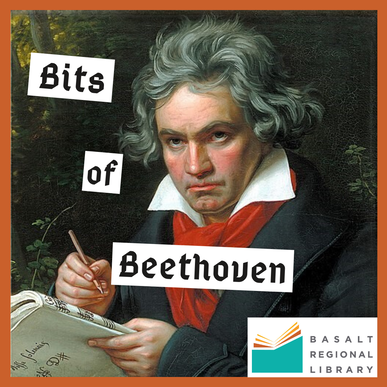 Hello Music Lovers of the Valley, The hope for this Bits of Beethoven blog post series, as described in my previous post, is that our exploration of Beethoven masterpieces will provide us with escape and sustenance during these difficult times. In our second entry, we will compare two piano sonatas from Beethoven’s middle period (1800-08), sometimes referred to as his Heroic Period: Sonata No. 21 in C major, Op. 53, known as the Waldstein, and Sonata No. 23 in F minor, Op. 57, known at the Appassionata. During his middle period, Beethoven was confronted with many obstacles to overcome—some personal, some resulting from this historical period. His deeply personal struggle was with the early stages of deafness, a struggle that ultimately resulted in self-imposed social distancing to avoid embarrassment. He was beset with anxiety over monetary problems caused by a dwindling number of students, due largely to his irascible personality. This forced him to court nobility to gain patrons in his new location, Vienna, and to seek out publishers that would pay respectable fees for his compositions. And he confronted these challenges while forced to cope with political instabilities caused by the French Revolution. Despite all, Beethoven “took fate by the throat” and creativity continued to flow from his pen. Changes in Beethoven’s middle period compositional style often appeared first in his piano sonatas. These recognized innovations were sometimes dismissed as eccentric. He extended the dimensions of the sonata and at the same time increased its complexities and technical difficulties. He explored extensively the coloristic qualities of the piano, including its highest and lowest registers, and employed a wide range of dynamics in both. His melodic style was described as heroic. Many of these changes to the sonata form reflect the tenets of the French Revolution. Let’s see how these changes are reflected in our chosen sonatas.
1 Comment
With the advent of spring, gardeners in the Mountain West are ready with their seed packets, either harvested or purchased, and waiting anxiously for the weather to cooperate for planting. This year is no different, especially in regards to the weather!
Our gardening season may be short, but enthusiasm for home-grown vegetables is on the rise. Lake Valley Seeds in Boulder, a source for the BRL, is experiencing extremely high demand for their seeds this spring. Just in time for the 50th anniversary of Earth Day, we are very happy to be partnering with the Basalt Community Garden and the CSU Extension/Master Gardener program in Eagle in offering a wide variety of local and retail seeds again this year through the Basalt Regional Library Seed Library. With Earth Day just around the corner, now is a great time to talk to your children about natural resources and climate change. Take advantage of our free library resources PebbleGo and PebbleGo Next to access lesson plans that you can use to teach your child about earth science from home. Additionally, you can supplement this lesson with eco-friendly activities, such as making your own paper out of scraps and starting your own window herb garden. Follow the instructions below to access our PebbleGo and PebbleGo Next resources, and then use the following instructions to make fun projects you can enjoy with your child! Research with PebbleGo & PebbleGo Next PebbleGo and PebbleGo Next are curriculum-connected research tools for children that you can access for free through Basalt Regional Library. Children can learn about topics ranging from science and animals to social studies and historical biographies. PebbleGo is designed for grades K-2, and PebbleGo Next is designed for grades 3-5. These are fantastic tools to help keep your children busy and supplement their education, especially during this time of social distancing and learning from home. We have provided instructions to navigate to the "Humans and Earth" lesson below, and we encourage you to explore all the other fantastic lessons these databases have to offer!
Hello and Good Health to you wherever you may be. As of right now most of us are on some state of lock down, not leaving home, working from home or avoiding people as much as possible. While this is honestly not the actual apocalypse, it certainly is very annoying. Working from the home is keeping many people busy, but we have a lot of time now to think about the films out there that can give us some good tips and tricks for keeping the peace with our quarantine mates, and—maybe most importantly—how to stay safe and sane in the face of long term boredom. Cube (1997)A stylish cult film, the sci-fi mystery Cube puts five strangers in a square room, with no memories, no answers and only each other to figure out why they are trapped in what might be the devil’s Rubik’s cube. Cube is an impressive low budget thriller that feels like an episode of the Twilight Zone from a slick, scary high tech future.
Valuable Takeaways: - Don’t stop the sudoku; keep your math skills sharp. - Hungry? You might run out of food, but you can always put a button in your mouth to stave off hunger for a while. - Colors matter- take the time to redecorate. Soothing blue rooms keep stress down, red lighting is harsh and dangerous. Where to watch: Free on YouTube. 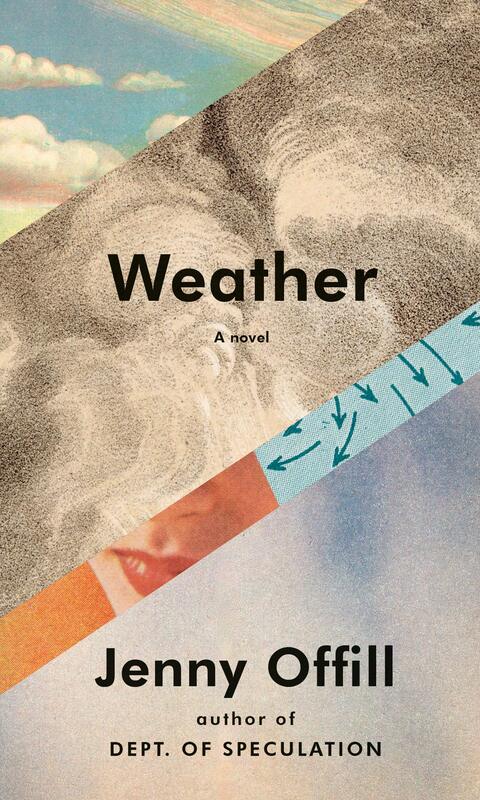 In these uncertain times, reading something light with an edge of humor is a good idea. Weather by Jenny Offill isn’t necessarily a funny book, but its author is very clever and her protagonist, Lizzie Benson, is a complicated mess, which can be amusing when it’s not crazy-making. The book is also interspersed throughout with many amusing and corny jokes. A woman walks into a dentist’s office. The dentist asks her why she’s there. She says she thinks she’s a moth. The doctor says, “You don’t need a dentist, you need a psychiatrist.” She says, “I have a psychiatrist.” The doctor asks her again why she’s there. She says, “Your light was on.” Lizzie lives with her husband, Ben, and their son, Eli, in a small apartment in an unnamed New York City borough. One neighbor is a drug dealer, and another, Mrs. Krovinski, rants about most everything. Even though she can’t afford it, Lizzie often hires a car service, where she is most likely the only customer in the age of rideshare competitors; she wants owner Jimmy to survive. Neither Lizzie nor Ben is working in the field in which they studied. Ben is a PhD classicist who makes educational video games. Lizzie left her graduate work to care for her brother, Henry, an addict. She also answers email for her former mentor Sylvia’s (who “used to check in on me sometimes to see if I was still squandering my promise”) doomsday blog, Hell and High Water. Eli attends first grade, is a truly delightful little boy, and Lizzie is a fun, responsive, and critically aware and present parent. No issues in the parenting department. Primarily Lizzie works as a university librarian where she is unqualified and fills the voids of her work days by being the on-site amateur therapist. Her husband quips that it’s too bad she isn’t a qualified therapist because they could use the money. Lizzie also attends meditation classes with friend, Margot, although mostly “the people who take this meditation class just want to know if they should be vegetarians or, if they already are, how to convert others." Raise awareness and appreciation for poetry this April with your children. Poetry is an amazing art form that many individuals have used to express themselves. Using words to describe how we feel at certain moments, or to describe our thoughts on specific topics, can help us gain greater self-awareness.
Help introduce this art form to children by reading or writing it. You can use our library resources, such as TumbleBooks, to find children’s poetry books that they can read along with. How to use TumbleBooks to find poetry books for kids:
If you would like more reading options, download the Overdrive app where you can look for more poetry eBook options for all ages using your library card. As spring is also here, we have provided a spring poetry activity below! 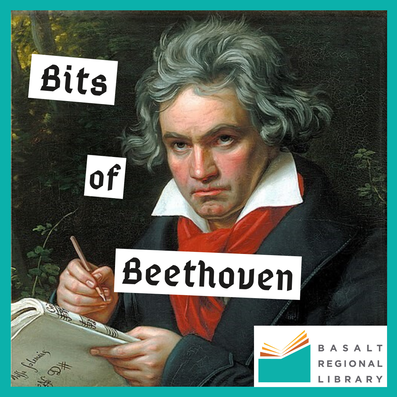 Hello Music Lovers of the Valley, “I wish you music to help with the burdens of life and to help you release your happiness to others.” - Ludwig van Beethoven Art can provide both escape and sustenance during these difficult days. I hope this series of music postings from Basalt Regional Library will inspire you to once again visit some Beethoven masterpieces to discover what they say in times of social distancing. Sadly, we have canceled Amanda Gessler’s Beethoven Piano Sonatas concert that had been scheduled for May 15th, rescheduling TBA. Amanda had planned to play sonatas from Beethoven’s late period, and I will list those in a future posting. I recommend we begin our listening with two piano sonatas from Beethoven’s early period (ca. 1770-1800): the “Pathetique”, Op. 13 (1799) and “Moonlight”, Op. 27 No.2 (1802). You can find performances of these sonatas on YouTube, and I include links to contrasting interpretations of each one. As I note below, I would love to hear back from you about the contrasting styles. On Tuesday, April 7th, the Library will host our first-ever Virtual Philosophy Club. This event will be held with the help of Google Hangouts, and will take place from 5 - 6:30 pm.
Please sign up in advance directly with me, Matt, by sending me an email at matthew.cleer@basaltlibrary.org, and I will send out the link you will need to join the event. During this month’s Philosophy Club we will discuss the philosophy of money! Is it the root of all evil or does it make the world go round? Or is money just cruel strips of paper that control your life? Let's find out! |
Adult News & reviewsLibrary news, info about upcoming events, reviews of books and films, and a look at the topics that affect us as a library. Archives
July 2023
|
General |
Borrowing |
About |

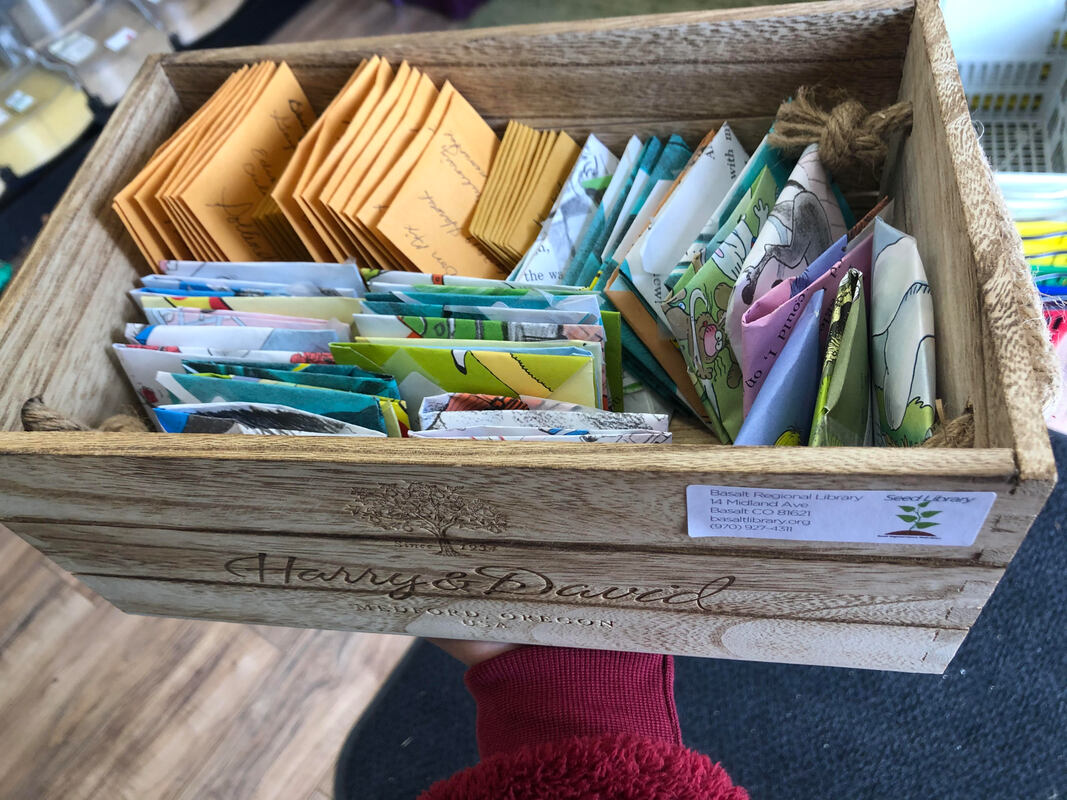

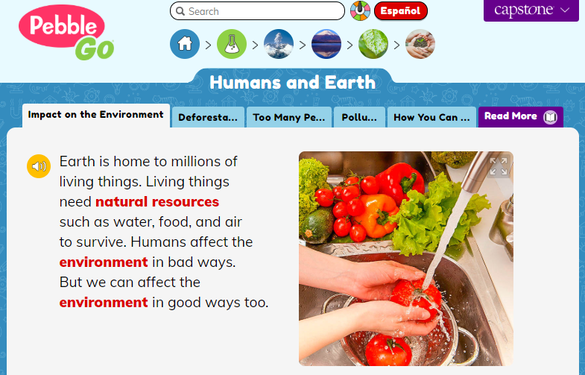

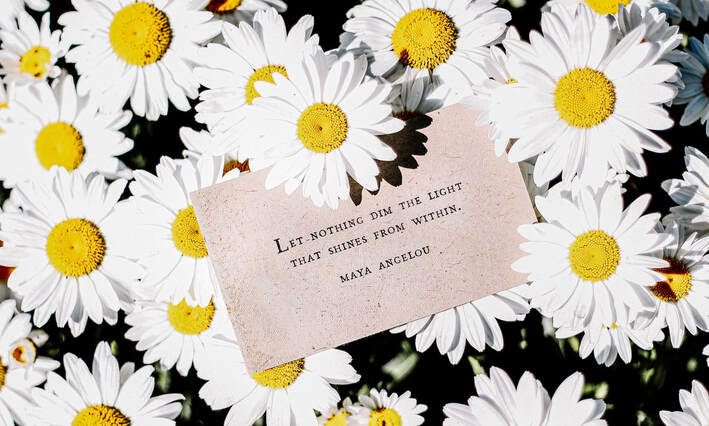

 RSS Feed
RSS Feed
